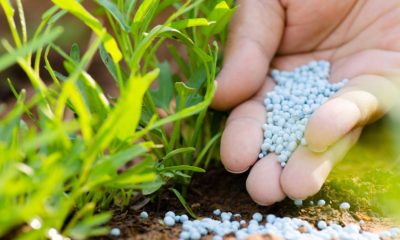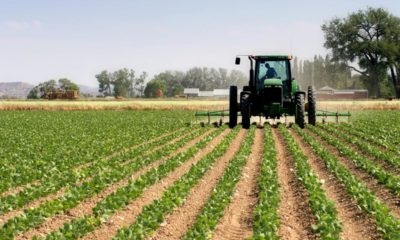The latest national accounts released by the National Bureau of Statistics (NBS) show that the agriculture sector grew by 2.1% y/y in FY ’21, compared with 2.2% in 2020. Crop production accounted for 90% of agriculture GDP, and expanded by 2.3% y/y. We also note thatthe forestry, livestock and fishing segments grew by 1.4% y/y, 0.6% and 1.2% y/y respectively. Agriculture accounts for c.26% of Nigeria’s total GDP and employs twothirds of the labour force. Over the past eight quarters, the sector has grown by 2.1% y/y on average.
The agricultural sector has been a beneficiary of substantial credit interventions by the CBN and state-owned development banks. At its last MPC meeting, the CBN disclosed that as at end-February ’22, total disbursements under the Anchor Borrowers’ Programme (ABP) amounted to N975.6bn to a total of c.4.5 million smallholder farmers across the country. The total disbursements under the Commercial Agriculture Credit Scheme (CACS) amounted to N735.2bn for 671 projects in agro-production and agro-processing.
The issue of a large informal economy is one reason for the misalignment between the growth figures recorded in this sector and intervention efforts. While agriculture has benefited from both policy continuity and several FGN/CBN credit interventions, its pace of growth has been slow as lack of access to finance also continues to pose as a challenge for the sector.
Based on data from the CBN, credit to the agricultural sector was 6.0% of total credit to the private sector in 2021, compared with sectors such as oil and gas (23.3%), manufacturing (16.8%), finance, insurance and capital market (7.0%) and trade/general commerce (7.0%).
There is a need for financial institutions to diversify products and services for active players across the agricultural value chain. This should boost returns and profitability of agricultural activities.
The unresolved insecurity challenges still undercut the FGN’s return on investments in the sector. Disruptions in agricultural supply chains are occasioned by bandits and herdsmen in food-producing areas of the country. Other structural challenges include output losses due to poor storage and logistics. To reduce post-harvest losses, the FGN could assist with linking smallholder farmers to markets, provide training on postharvest management and the use of technology, as well as promote innovative mechanisms to facilitate alternative ways of transporting agricultural output.
As for supply chain linkages within the sector, Nigeria focuses heavily on agricultural output, neglecting the processing and manufacturing segment of the value chain. We note that shortages of resources, lack of financing and inefficient transport systems disrupt the development of food production along the value and supply chain.
Turning to the fertilizer space, in March ‘22, the Dangote fertiliser plant located in Lagos was launched. The 3MT fertiliser plant, occupies 500 hectares of land and is regarded as Africa’s largest granulated fertiliser complex. According to the World Bank, Nigeria has the lowest fertiliser applications in Africa at 20 kilogrammes per hectare, lagging behind Egypt and South Africa.
Nigeria’s fertiliser demand is expected to range between 5 -7 million metric tonnes in the coming years. The newly launched Dangote fertiliser plant could potentially reduce the supply gap, which is currently covered by importation.

 Forex3 weeks ago
Forex3 weeks ago


 Naira2 weeks ago
Naira2 weeks ago
 Billionaire Watch2 weeks ago
Billionaire Watch2 weeks ago




 Naira2 weeks ago
Naira2 weeks ago




 Naira4 weeks ago
Naira4 weeks ago




 Naira2 weeks ago
Naira2 weeks ago


 Naira1 week ago
Naira1 week ago
 Banking Sector4 weeks ago
Banking Sector4 weeks ago


















